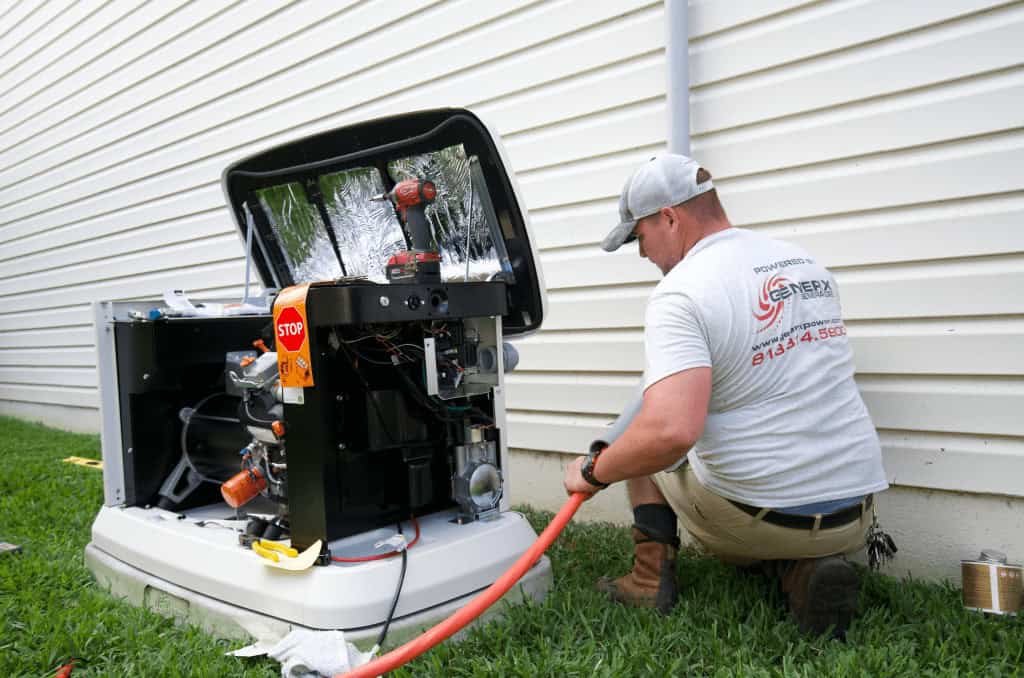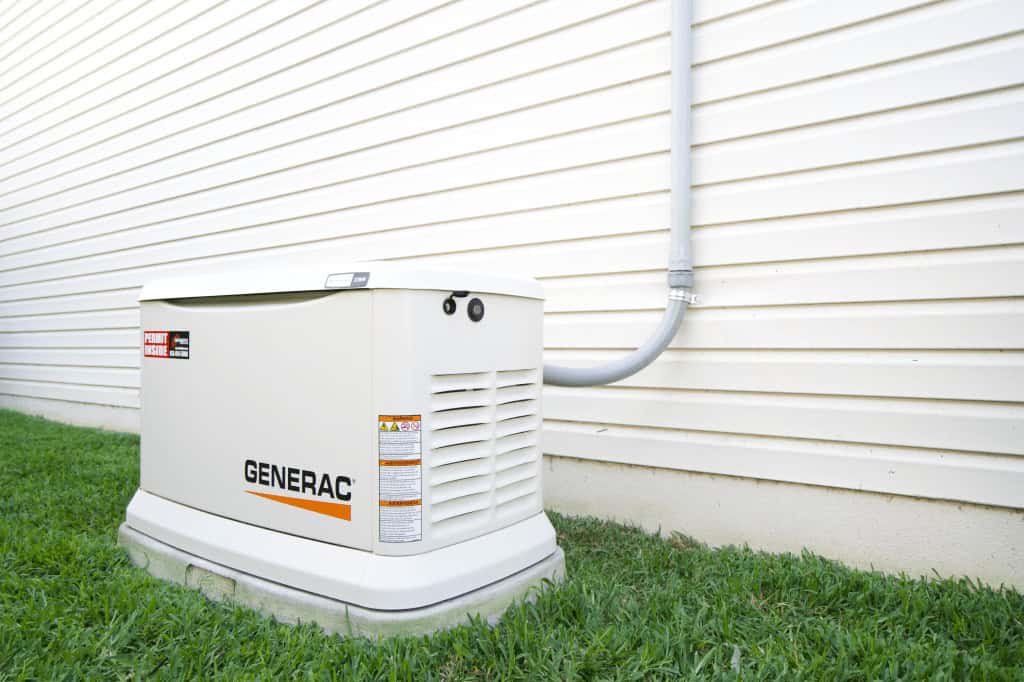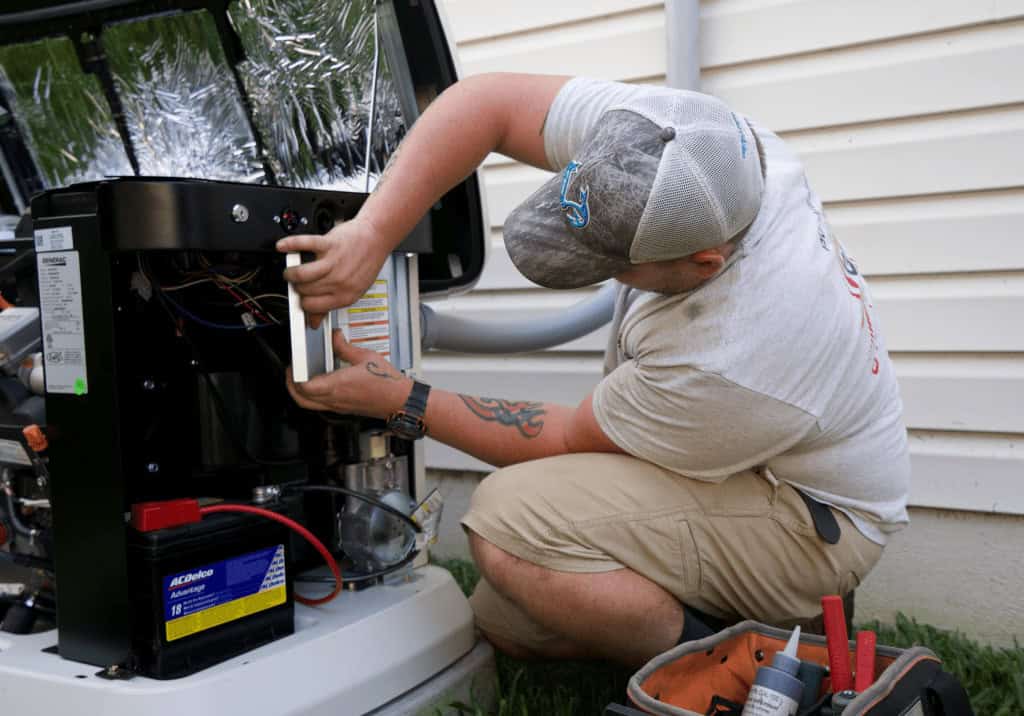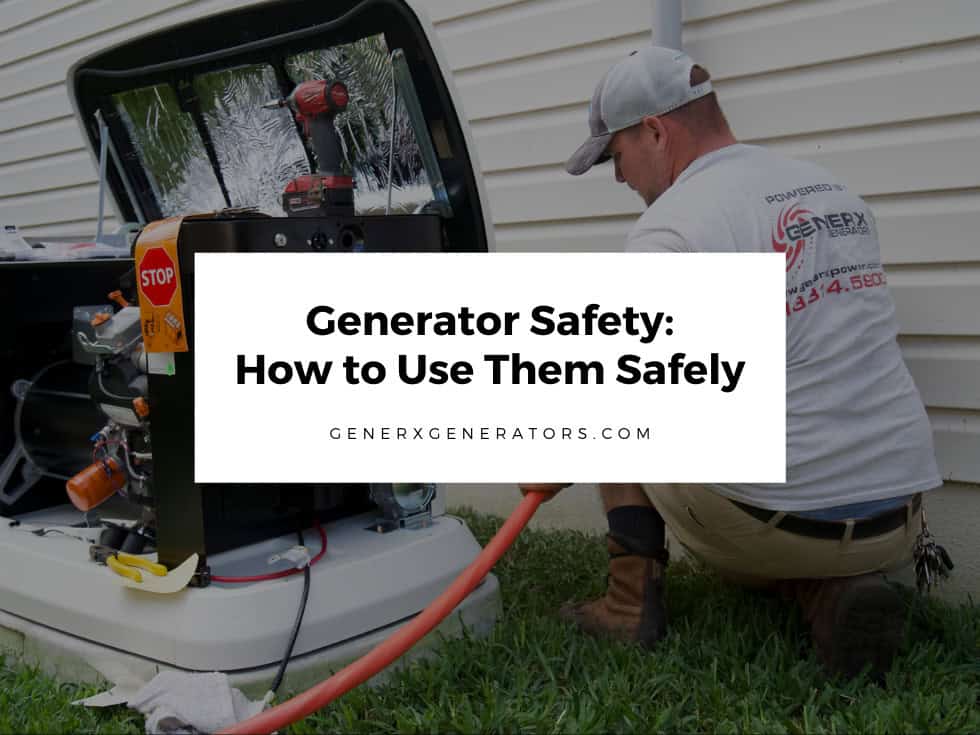Using Generators Safely
*Disclaimer: GenerX Generators sells, installs, and maintains Generac Standby Generators. We DO NOT sell or service portable generators.
If you live in an area prone to frequent power outages, natural disasters, or you rely on power for medical equipment, generators can do a lot to protect your peace of mind. When the power goes out, your generator will provide you and your family with the electricity needed to stay safe, productive, and comfortable. However, although helpful, generators themselves can pose a few safety hazards.
User error can lead to a number of dangers, including electrocution, fire, and carbon monoxide poisoning. Being aware of the dangers and the importance of generator safety can keep you and your family safe when using a generator.
Below we have broken down the safety risks posed by both portable and standby generators. We want you to please keep in mind that portable generators tend to offer more opportunities for user error.
Portable Generator Safety
Before you purchase and operate a portable generator, it’s vital to understand the conditions required to properly run it in order to avoid safety hazards. You’ll notice that there are many more safety concerns and precautions when using a portable generator versus a standby generator, so please read carefully.
1. You should always run a portable generator outside in an open and dry area.
2. Keep it away from water. In case of rain, you may want to buy a portable generator tent, which will keep the generator dry and the area well-ventilated.
3. Do not use electrical equipment that has been submerged in water. Equipment must be thoroughly dried out and properly evaluated before use. Power off and do not use any electrical equipment that has strange odors or begins smoking.
4. You should also be careful never to touch the generator with wet hands, as this could put you at risk of electrocution.
5. For maximum safety, have a transfer switch installed before operating the generator. A transfer switch allows you to connect the generator to your circuit panel without using extension cords, which keeps the risk of electrocution much lower.
6. If you must use an extension cord, make sure it is a heavy-duty one that is rated at least equal to the sum of the connected appliance loads and free of cuts or damage. Disconnect the power in your home before operating the generator.
7. You should also make sure your generator is properly grounded before running it, which also helps prevent electrical shocks.

8. One of the most dangerous things you can do when operating a portable generator is to back feed your house, which is to say plugging the generator into a wall outlet in an attempt to power your home’s wiring. This not only poses an electrocution risk to you, but it may also put utility workers or neighbors at risk. Backfeeding also has the potential to fry some of your electronics or start a fire because it bypasses your home’s circuit protection devices.
9. Never use a generator indoors or in enclosed spaces such as garages, crawl spaces, and basements. NOTE: Open windows and doors may NOT prevent Carbon Monoxide from building up when a generator is located in an enclosed space.
10. Make sure a generator has 3 to 4 feet of clear space on all sides and above it to ensure adequate ventilation.

11. Do not use a generator outdoors if its placement near doors, windows, and vents could allow Carbon Monoxide to enter and build up in occupied spaces.
12. If you or others show symptoms of Carbon Monoxide poisoning—dizziness, headaches, nausea, tiredness—get to fresh air immediately and seek medical attention. Do not re-enter the area until it is determined to be safe by trained and properly equipped personnel.
13. Generators become hot while running and remain hot for long periods after they are stopped. Generator fuels (gasoline, kerosene, etc.) can ignite when spilled on hot engine parts.
14. Before refueling, shut down the generator and allow it to cool.
15. Gasoline and other generator fuels should be stored and transported in approved containers that are properly designed and marked for their contents, and vented.
16. Keep fuel containers away from flame-producing and heat-generating devices (such as the generator itself, water heaters, cigarettes, lighters, and matches). Do not smoke around fuel containers. Escaping vapors or vapors from spilled materials can travel long distances to ignition sources.
17. Do not store generator fuels in your home. Store fuels away from living areas.
18. Performing a check run on your generator about once a month is important as well. This keeps the engine healthy and allows you to check to make sure everything is running properly. You’ll want to check oil and fuel levels every time you run the generator. If anything seems amiss, have a professional take a look at the engine.

If you’re ever unsure how to use your portable generator, PLEASE call a qualified electrician for instruction
Standby Generator Safety
Because standby generators are installed by professionals, contain weather-proof casing, and turn on automatically during a power outage, they tend to be safer than portable generators. Still, it’s important to treat standby generators as machines capable of causing serious harm.
1. Do not tamper with the casing around the generator or attempt to make repairs on your own without the help of a qualified electrician.
Electrocution can still occur if you or your family tamper with the standby generator’s wiring or engine.
2. Carbon monoxide poisoning is much rarer for standby generators.
For one thing, since they are installed by professionals, they are usually operated in an open space. Do not build any enclosed structures, such as a garage or shed, around the generator after it is installed, and try to keep it clear of fallen leaves and other debris. A small fence around the generator, however, would be unlikely to pose a threat, and it may help keep pets and small children safe from tampering with the generator.
3. If the standby generator is powered by diesel or propane instead of gasoline, it will not produce carbon monoxide in as high of quantities, though some will still be produced.
If it is powered by natural gas, the generator will not produce any carbon monoxide if it is functioning properly, but if a malfunction causes the natural gas not to burn completely, carbon monoxide may be produced.
4. To prevent a potentially dangerous malfunction, it’s important to properly maintain your standby generator.
By running it at least once a week. Every time you run the generator, check oil and coolant levels, as well as fuel levels if the generator is not attached to gas lines. Every 6 to 12 months, you should hire a technician to perform a more detailed inspection. If you don’t already have a maintenance plan for your generator, most dealers offer maintenance packages.
Regardless of whether you own a portable or standby generator, regular maintenance and inspection plans are important steps to keeping your generator running smoothly and preventing any potentially dangerous malfunctions. Generators are complicated electrical machines capable of causing life-threatening electric shocks, fires, and carbon monoxide poisoning, so it’s important to treat them with care.
We’re happy to service the following areas: Bradenton, Clearwater, Sarasota, St. Petersburg, Tampa, Orlando, Ocala, Flagler
*Safety information sourced from OSHA.

